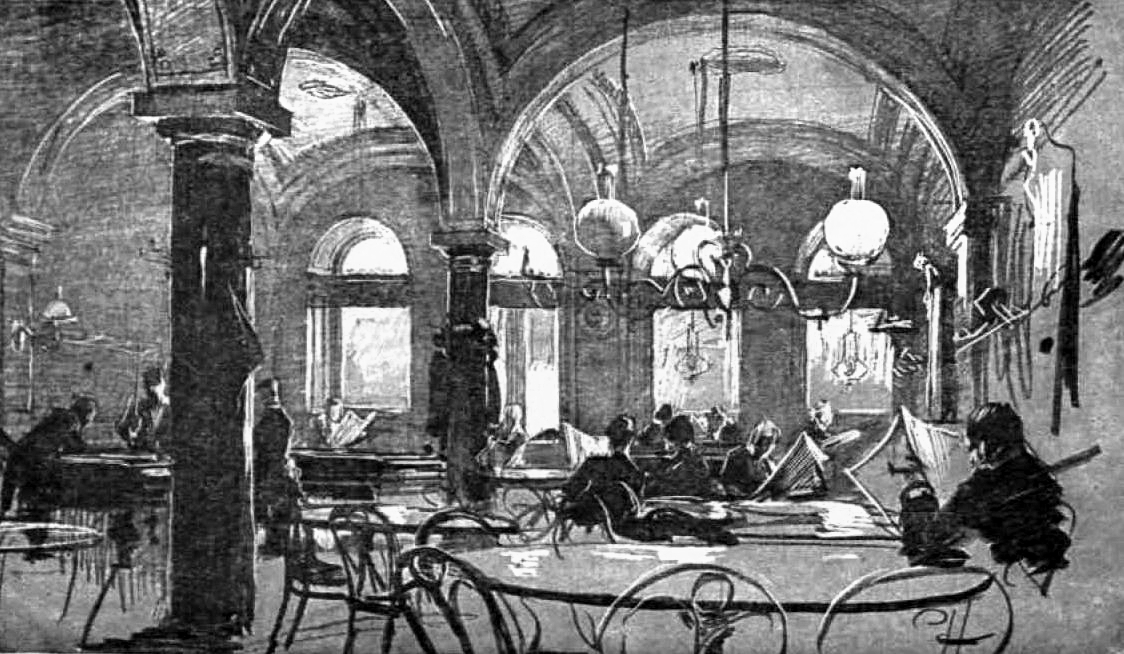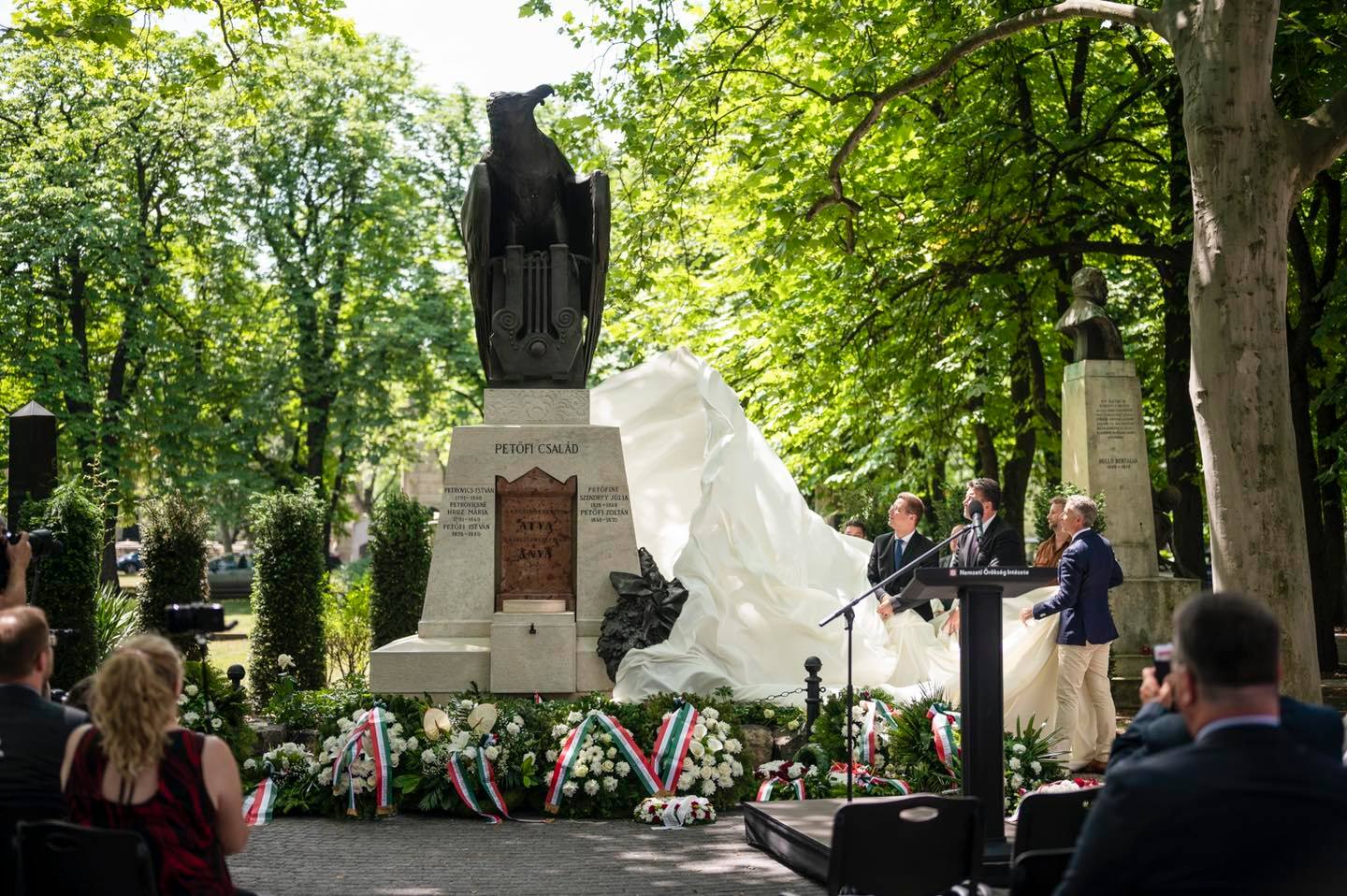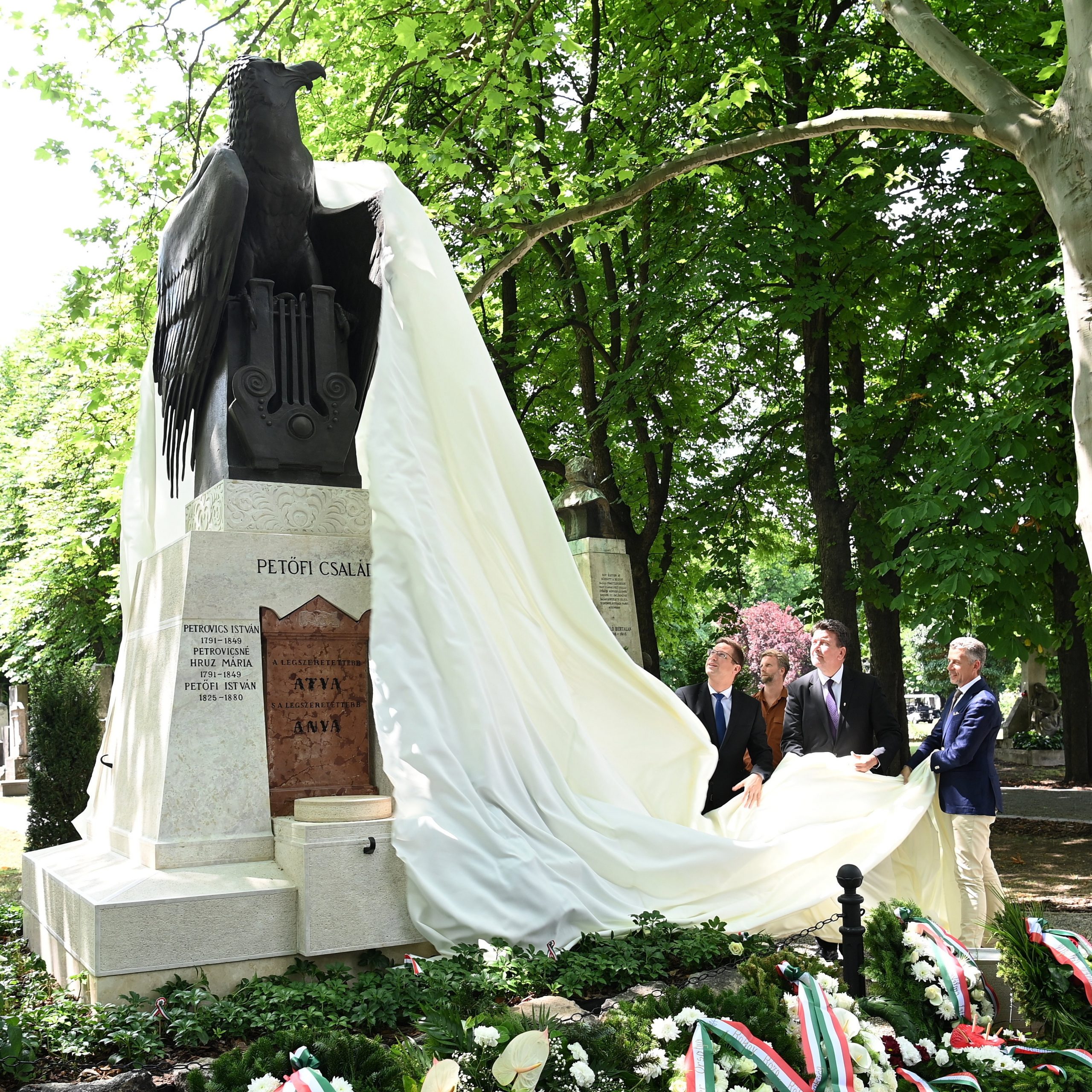
In Hungary, too, coffee houses were the centers of social life. Just think of the Pilvax Café, which was one of the starting points of the 1848 revolution.Continue reading

The restored tomb of the Petőfi family was inaugurated on Saturday in Budapes’t Fiume Road Graveyard. The renovation was made possible by a private donation from producer Philip Rákay and his wife Orsolya Wieber, along with the National Heritage Institute (NÖRI).
Sándor Petőfi was a Hungarian poet and revolutionary leader. He is considered to be Hungary’s national poet, and was one of the key figures of the Hungarian Revolution of 1848-49. He is the author of the Nemzeti dal (National Song), which is said to have inspired the revolution in the Kingdom of Hungary that grew into a war of independence from the Habsburg Empire. He is thought to have died in the Battle of Segesvár (now Sighisoara, Romania), one of the last battles of the war.

Gergely Gulyás, head of the Prime Minister’s Office, Gábor Móczár, Director General of the National Heritage Institute (NÖRI), and Philip Rákay, producer, unveil the renewed Petőfi family memorial at the Fiumei Road cemetery on June 11, 2022. Photo by Zoltán Máthé/MTI
As Gábor Móczár, Director General of NÖRI also pointed out, this means that from all the members of the Petőfi family, only the poet, who died on the battlefield, is not buried at the grave site as his body was never recovered. Others, including Petőfi’s parents, István Petrovics and Mária Hrúz, his wife, Júlia Szendrey, their child Zoltán Petőfi, and the poet’s younger brother István all rest in the graveyard. In addition to his family, the National Pantheon is also the resting place of several people who are linked to Petőfi, including his best friend, the equally famous poet János Arany.
“Monuments are not for the heroes, but for us, the late descendants, who want to preserve, restore, and revive as much as possible of what Sándor Petőfi’s life’s work embodies and sends a message for today. We must remember so that we can appreciate freedom,” said Gergely Gulyás, Minister of the Prime Minister’s Office, referring to the late poet as a figure “holding up a mirror to remind us that Hungarians all belong together in freedom.”
Last year on March 15th, Philip Rákay, the patron of the restoration of the memorial, recalled that when he and his wife had brought flowers to the memorial of the heroes of ’48, they were confronted with the undignified state of the Petőfi family’s tomb and approached the NÖRI to finance its restoration.
The burial place was established in 1908 on the initiative of the Petőfi Society; his parents’ grave was originally in the Józsefváros cemetery. The stone and metal parts of the entire monument have been renovated, as well as the surrounding plants and paving. The original road network around the Petőfi family tomb has also been restored.
Source: Magyar Hírlap
Featured image via the Facebook page of Gergely Gulyás